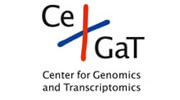LAB HOURS: MON - THU and SAT : 9:00 AM to 9:00 PM
FRI and SUN : 9:00 AM to 6:00 PM

- Sequencing and MLPA (deletions/duplications) of individual genes
- Genetic panels where multiple genes associated with a disease/syndrome are sequenced
- Whole Exome Sequencing: This method is very useful to identify mutations in single genes that cause rare genetic diseases. The coding regions of all genes are covered instead of just focusing on one or a few genes. Approximately 85% of known pathogenic mutations are found in these regions of the genes.
- Microarray Diagnostics : Genomic imbalance and DNA copy number variation are major causes of developmental disorders. In this test the patient’s entire genome is compared to the genomes of healthy control subjects.
- Karyotyping (Chromosome)
Genetic Testing and Panels
Genetic testing is most often done to confirm the diagnosis of a syndrome or disease, which is known to be caused by a genetic alteration.
Read More
Whole Exome Sequencing (WES)
Exome analysis is based on next-generation sequencing (NGS), and is used to identify variants in single genes that cause rare genetic diseases.
Read More
- Testing for autoimmune disorders
- Allergy testing panels (food, inhalants, atopy) and individual allergy tests
Autoimmune Disorders
We offer extensive autoimmune disorder testing by IFT (immunofluorescence testing) or panels by blot. Our pathologists are very experienced in the field of autoimmunity.
Allergies (IgE-mediated, type I)
Freiburg Medical Laboratory offers detailed allergen-based tests for autoimmune disorders and all-inclusive panels for suspected allergies.
Read More
- Therapy monitoring for prescribed medication
- Drug testing in urine and blood
Endocrine system is a collection of glands in the human body such as pituitary, thyroid, parathyroid, adrenal, pancreatic, ovaries (females) and testes (males) that collectively regulate metabolism, growth, development, tissue function, reproduction, fertility, mood and many other vital functions.
- Mineral and Metal analysis in hair and blood
- Heavy metal analysis in urine
- Blood and urine analysis for exposure to environment and occupational toxins
Vitamins, Minerals and Metals
Good overview of one’s vitamin status, levels of minerals, trace elements and metals.
Read More
- For complete range of laboratory investigations for fertility.
Read More
Food Hypersensitivity (commonly known as "Food Intolerance")
There are many reasons why certain foods might not be well tolerated, causing symptoms such as bloating, diarrhea, headaches, or skin problems. One possible cause is an IgG food allergy (type III). These delayed allergies can cause low-grade inflammatory conditions, which in turn are thought to be possible triggers of different chronic diseases.
Read More
- Comprehensive testing for general health
- Specific testing for any health issues
- Alpha and beta thalassemia testing
- Hemoglobin studies for any other abnormalities
- Anemia testing
Thalassemia
Thalassemias are classified according to clinical symptoms and to distinct hemoglobin defects.
Read More
Sickle Cell Disease
Sickle cell disease is observed frequently in the African/Asian population as well as in the Mediterranean/ Middle Eastern population. Here, a common problem is a combination of sickle cell and beta thalassemia genes.
Read More
Hemoglobinopathies
The hemoglobin electrophoresis / HPLC separates the following hemoglobin sub-units: HbA1, HbA2, HbF (fetal Hb), HbS (sickle cell Hb) and others.
Read More
- Antibody testing (immunoassays) and direct testing of infectious pathogens (PCR)
- Bacteriological analyses including resistance testing (antibiotics)
- In-house HPV molecular testing
- Respiratory and gastrointestinal panels
Human Papillomavirus (HPV)
There are various types of the human Papillomavirus and most types are transmitted sexually. Many of these do not show symptoms, do not cause disease and disappear after 1-2 years. Of the types of HPV, some carry a high oncogenic risk, others a low oncogenic risk. Some of the high-risk HPV types (HR-HPV) may progress to pre-cancerous lesions and invasive cancer.
Read More
Respiratory and Gastrointestinal Panels
Possibility to detect multiple infectious agents in one assay using only one sample. Multiplex technology allows a large number of tests to be conducted simultaneously and analyzed quickly, cost-effectively and accurately.
Read More
- Newborn screening using filter cards (36-72 hours after birth)
- Metabolic screening for babies older than 1 month also using filter cards
- Amino acid (blood, urine) and organic acid (urine) screening
- Lysosomal storage disease testing
Metabolic Screening Tests/Metabolic Genetic Disorders
Metabolic Disorders or Inborn errors of metabolism (IEM) are genetic conditions which result in an inability of the cells of the body to perform certain functions such as breaking down food, making energy, or clearing toxic byproducts. These are most common in newborns and infants, however they can also be found in adults.
Read More
- Initial testing in blood and urine when suspecting a mitochondrial dysfunction
- Genetic testing to confirm mitochondrial diseases (mtDNA and nuclear DNA)
We offer many different panels covering together 396 genes associated with mitochondrial disorders.
- neoBona test (NIPT) starting from gestational week 10
- First Trimester risk calculation for trisomies 21, 13, 18 (gestational weeks 11-14)
- Second Trimester risk calculation (Triple Test, Quadruple Test) for trisomies 21, 13, 18 and NTD (gestational weeks 14-18)
NIPT – neoBona Test
Non-invasive prenatal testing (NIPT) analyzes cell-free DNA from the fetus circulating in the pregnant mother’s blood. This is a prenatal screening test for Down syndrome (trisomy 21) and two other common fetal chromosomal abnormalities (trisomies 18 and 13). Also, testing for X and Y chromosomes is possible upon request.
Read More
First & Second Trimester Risk Calculations
Freiburg Medical Laboratory offers the First Trimester Screening (FTS) as a non-invasive pregnancy evaluation, performed at 11+0 – 13+6 week. The screening involves a combination of ultrasonographic measurement of nuchal translucency (NT) and biochemical analysis of maternal serum levels of two pregnancy-related proteins: free beta-hCG (beta-human chorionic gonadotropin) and PAPP-A (Pregnancy Associated Plasma Protein-A). Please note that numerous studies have revealed that the first trimester screening is far more sensitive for detecting Down syndrome than the second trimester screening (Triple test).
Read More
Anti-aging & Nutrition category includes a variety of tests for biochemical, vitamins, minerals and other factors important for good health.
Read More
Obesity is defined as having a Body Mass Index (BMI) of 30 or more. BMI is a widely accepted indicator of obesity worldwide. However, it does not distinguish between excess muscle, bone mass or amount of fat and its distribution. There is a high prevalence of overweight and obesity (43.0 and 32.3%, respectively) amongst expatriates in UAE.
Read More
- General blood tests (e.g. blood group, hemoglobin studies)
- STD and infectious disease testing (see STD panels)
- Hormone testing, semen analysis, ovarian function (see Fertility)
- Chromosome analysis (see Fertility)
- Paternity testing
Pre-Marital Testing
Pre-marital screening is a group of tests recommended for couples that are going to get married, to prevent as much as possible transmitting disease to their offspring.
Read More
- Comprehensive testing for cardiovascular risk
- Diabetes check-up
- Metabolic Assessment
STD Panel Testing
Getting tested for STDs (sexually transmitted diseases) is an important step in protecting the health of sexually active patients. The term “sexually transmitted disease” (STD) has replaced the term “venereal disease”. STDs are generally acquired by sexual contact. Some infections are also transmitted non-sexually such as diaplacentally during pregnancy or from mother to infant during childbirth, through blood transfusions or through shared needles. Sexually transmitted infections have a range of signs and symptoms and may go unnoticed until complications occur or a sexual partner is diagnosed.
Read More
Specific testing for UAE nationals and residents based on the diet and lifestyle choices in the region.

Lab hours
MON - THU and SAT 9:00 AM to 9:00 PM | FRI and SUN : 9:00 AM to 6:00 PM













